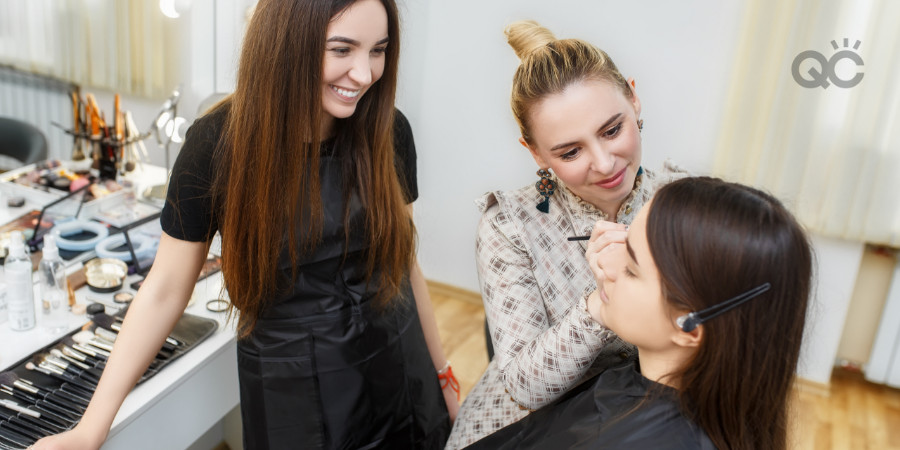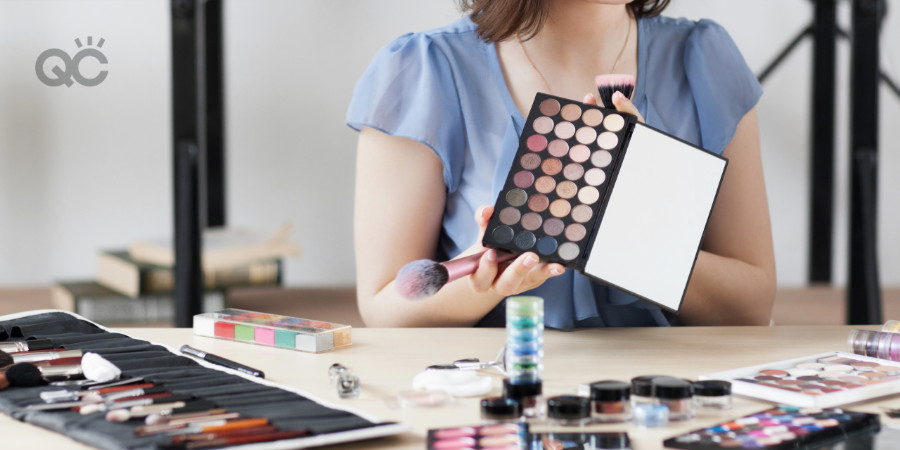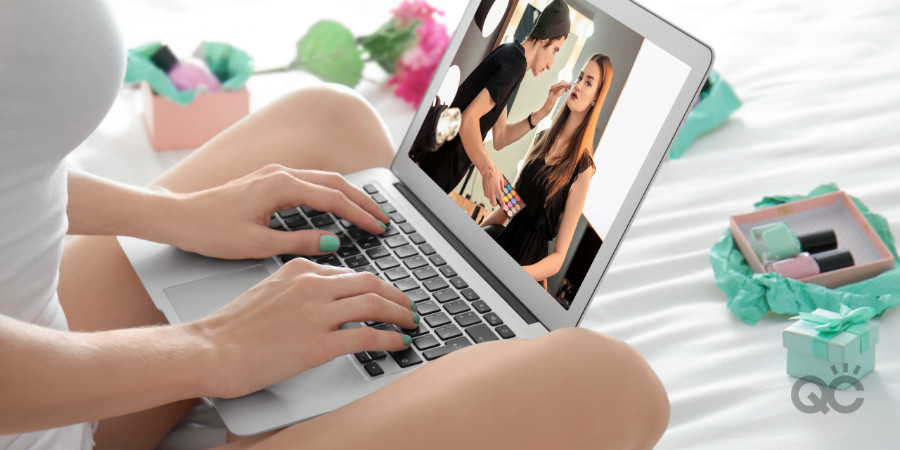You’ve probably heard the phrases “makeup artist license” and “makeup artist certification” get thrown around a lot. You may be wondering what the difference is between them. To be fair, it is quite confusing if you don’t know the lingo. We wouldn’t be surprised if even established makeup artists don’t know the difference!
But we’ve been asked this question so many times that we thought we’d lay it out all for you. Most of this information is drawn right from our handy (and free) guide on certifications, diplomas, and licenses. You can download the eBook here!
Ready? Let’s dive into it!
What is a makeup artist certification?
Before we go into what a certification entails, let’s get one thing straight: a makeup certification is NOT the same as a makeup diploma!
We often hear “makeup certificate” and “makeup diploma” used interchangeably. When you graduate from brick-and-mortar colleges, you can expect to receive a makeup diploma. This diploma may be a requirement to work as a cosmetologist or esthetician, but may not be a requirement to work as a makeup artist.
Think of a makeup artist certification as a way to enhance your skills and show you are experienced in makeup artistry. When you complete a certification from an accredited makeup school, employers and clients will recognize this as proof that you know what you’re doing! Getting a makeup certification is no walk in the park – you need to earn it!
Of course, there are tons of different makeup certification programs out there. QC Makeup Academy offers ten makeup courses with various certifications! Having a certificate in a specialization such as airbrush makeup, special FX, or global beauty, for example, is certainly a way to set yourself apart.

What is a makeup artist license?
In case you haven’t reached this conclusion yet, makeup certificates are not the same as a makeup license. If you’re working with chemical treatments for hair and skin, you need to obtain a cosmetology or esthetics license to work in your region. However, this may not be necessary for makeup artists who only do superficial beauty applications.
Additionally, a license just for makeup artistry may be required depending on where you’re located! In the United States, for example, all states have slightly different regulations. In some states or cities, you may need a license to work as a freelance MUA. While in other regions, you don’t need any credentials at all (but this is where getting a makeup certification helps set you apart from the self-taught MUAs).
A makeup certification will help you start a successful career no matter where you are. Just know that you may be subject to further regulations that artists in your neighboring state won’t be.
How do I know if I need a license?
RESEARCH! We always get questions about this and we always have the same answer: do your research! Call or contact your local cosmetology or licensing board and find out what you need to work as a makeup artist in your area. Since QC Makeup Academy has students from all over the world, we (unfortunately) can’t keep track of all the regulations for you.

How do I get a license?
Again, regulations vary all over the world. Often, if you do need a license, you’ll need to prove you have some formal education as well as complete a certain number of practice hours. After you’ve proven that you’ve met the criteria, you’ll be able to take a licensing exam.
Keep these points in mind before diving into your makeup education:
- You’ll need to know professional safety and sanitation techniques to pass your licensing exam.
- Some states don’t allow you to complete the exam if you don’t have any formal training.
- The exam will be a mix of theory (written test) and application (hands-on test). These exams prove to the board that you‘re prepared to work in the industry.
- Passing the initial exam isn’t the end of the road. Once you complete the first exam, you’ll have to adhere to licensing rules and renew your license every year at most.
Don’t waste your time and money on a diploma or license if you don’t have to! Do thorough research. That means more than just checking a Wikipedia page or doing a quick Google search. As we said, we recommend calling or emailing your licensing board directly.

Why you should earn a makeup certificate in addition to your makeup artist license:
Earning a certification (with the right school) won’t be a waste of money at all. A certification alone may not be enough for you to work as a MUA in your area. But it will prove that you’re experienced and have professional skills. Even established makeup artists can benefit from additional makeup training. We’ve discussed the perks of earning a certification a thousand times on our blog… but we’ll do a quick review for you here:
Makeup discounts
This is a huge reason why people choose to complete a certification. With most schools, you get discounts on brand-name beauty products and makeup, which can be a career-changing benefit. Why? Because you’ll save money and be able to build an amazing professional makeup kit.
Experience
Most accredited certification programs require plenty of hands-on practice through practical assignments. So if you’re just starting out, you’ll gain experience that will benefit you as you jump into your professional career. This leads us to…
Portfolio & resume building
Having a portfolio is a must for all MUAs. After all, how else are you going to show potential clients and employers that you actually have professional-level skills? Since you’re working on hands-on assignments, you’ll be able to add these to your portfolio! Having a certification (or a few) under your belt will help you build and write a killer resume.
Related Articles:

Learn from an expert
The final perk we’ll mention here is the fact that (at a good makeup academy) you’ll be getting expert training. All of QC’s tutors, for example, have years of experience in the industry and want to work with you to help you become the best makeup artist you can be.
Even if you need a makeup license to work as a MUA in your area, having professional training is going to help you out. Your tutors likely know all the regulations of the industry (the basics are similar all over the world). Plus, you’ll learn about hygiene, client care, and advanced techniques if you take a foundational course such as Master Makeup Artistry.

Do you guys give out a makeup diploma at all? Or even a makeup licence?
Hi Amanda, we do not give out makeup diplomas (which require a multi-year education at a college) or makeup licenses (which are usually tied to an individual city or state’s regulations) as we are an international makeup academy. However, we do offer an internationally recognized makeup certification, which many graduates all over the world have used to work for a makeup company, break into the entertainment industry, or start their own makeup business! Let me know if you have any further questions. – Celina
So this is very informative and something I didn’t realise before I joined the school myself, this is something I am passionate about and I think if you want to be a makeup artist you would pay for the certificate to show clients and future jobs you are serious and know what your doing, anyone can call themselves a makeup artist but just because you know how to do a smokey eye doesn’t make you one. You need proper training and this school help you out without a doubt to get you to where you need to be. Also if you want to do other things you may need a license so please make sure you research as you could get into trouble and no one wants that
I’m not going to lie when I say that I still stress over this subject! lol
It can be really confusing to know what the laws say in your particular area because they are written using such legal-terminology that it’s hard to follow. I’m glad that this article shed some light on the KEY differences between licensing and certifications. I currently live in the NYC metro area, and it can be a bit woozy knowing what NJ requires vs. NY. Luckily, this article highlights the importance of reaching out to our local officials because every state should have a Cosmetology Board – which I didn’t really know until reading this article! lol
Thank you for sharing this great information!
The topic of certification vs. licensing is SO important for aspiring makeup artists, so we’re thrilled to hear that this article helped clarify a few key things for you, Jordan! We agree; the legal jargon can be confusing for many of us, which is why we feel it’s important to help explain things in a way that will make it easier to understand. For those with serious dreams of working professionally as an MUA, it’s critical to know what’s required of you, and how to go about obtaining that necessary certifications and/or licensing.
Thanks so much for commenting! 🙂
All the best,
The QC Team